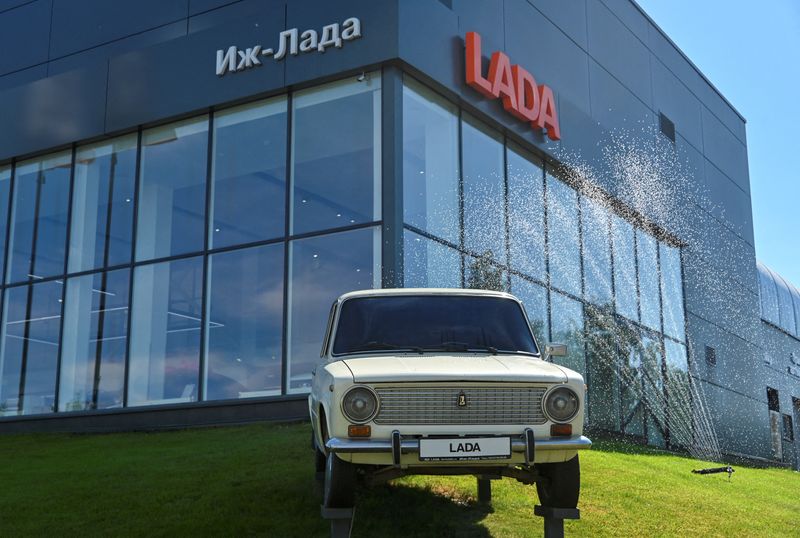By Gleb Stolyarov and Alexander Marrow
(Reuters) - Car sales in Russia rose 168.8% year-on-year in July, partially bouncing back from a slump in 2022, data showed on Friday, the day after President Vladimir Putin called on state bodies to stop using foreign-made cars in favour of domestic ones.
Russia's auto industry had been heavily reliant on investment, equipment and parts from overseas and was hit hard by the fallout from Western sanctions over Russia's invasion of Ukraine, with sales plunging 59% in 2022 and many foreign automakers leaving the country.
Analytical agency Autostat, citing data from its partner consulting company PPK, said 95,654 vehicles were sold in July, up from 82,407 in June and just 35,584 in July 2022.
Putin told a meeting of manufacturing industry representatives on Thursday that some ministries had asked for permission to continue buying foreign-made cars.
"I said that this should be absolutely excluded and all officials of the country should drive domestic cars," Putin said, telling officials they should strive to develop domestic brands, domestic cars, and other domestic products.
Putin himself drove a Mercedes-Benz across the Crimean Bridge linking southern Russia to the annexed Crimean peninsula in December, two months after an explosion had torn through it, one of the Kremlin chief's showcase infrastructure projects.
Kyiv has demanded that Moscow hand Crimea back.
But Russian cars may not be able to keep up with demand. Chinese carmakers are seizing market share in Russia, capitalising on the departure of Western players, auto industry data shows.
Chinese firms are also increasing their sales in Russia with vehicle assembly at factories vacated by the likes of Renault (EPA:RENA) and Nissan, Reuters has found.
Russia's Lada holds the number one spot in the domestic market, with its share for January-June at 32.6%, up from 21.6% last year.

Lada's share slipped slightly in July year on year, as Chinese carmakers' sales continued rising rapidly, the data showed.
Chinese brands, such as Haval, Chery and Geely, accounted for the next six spots in terms of market share in July.